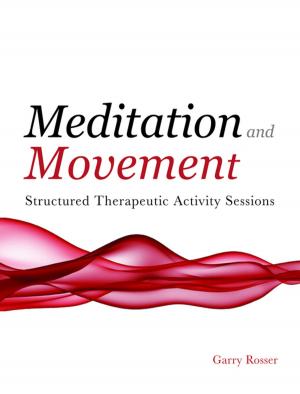Perspectives on Rehabilitation and Dementia
Nonfiction, Health & Well Being, Medical, Ailments & Diseases, Diseases, Health| Author: | Faith Gibson, Suzanne Cahill, Linda Clare | ISBN: | 9781846420382 |
| Publisher: | Jessica Kingsley Publishers | Publication: | August 15, 2004 |
| Imprint: | Jessica Kingsley Publishers | Language: | English |
| Author: | Faith Gibson, Suzanne Cahill, Linda Clare |
| ISBN: | 9781846420382 |
| Publisher: | Jessica Kingsley Publishers |
| Publication: | August 15, 2004 |
| Imprint: | Jessica Kingsley Publishers |
| Language: | English |
The volume has ambitious scope and covers almost all potential supports and services. Most of the chapters have been written by professionals who work with people with dementia and their families, and most are British social workers and professionals allied-to-medicine (occupational therapy, physiotherapy and speech and language therapy).'
- Ageing and Society
'Marshall, in her introduction, states that the aim of the book is to strengthen the link between rehabilitation and dementia and to encourage the understanding that people with dementia do benefit from rehabilitation and treatment. The book clearly meets this aim with the contributors offering convincing arguments for the conceptualisation of dementia care as rehabilitation and the potential for improvements in symptoms and in quality of life for people with dementia... The book is accessible, easy to read, informative and provides practical information and new ideas useful for practitioners, services providers, commissioners and policy makers.'
- Social Policy
'This book has much to offer a range of professionals and those teaching them at post-qualifying levels.'
- Journal of Interprofessional Care
'The chapters give us a real and honest appraisal of the pains and possibilities of dementia. And David Jolley ends his chapter with what could be seen as a surprising statement that "Life with dementia is worth Living". His ideas sum up the tone of the book which asserts that people with dementia still have much to give but need help in order to maintain health, safety and dignity, and offers various practical therapeutic models that have been worked out in different settings... throughout the book we are encouraged to keep the person with dementia at the centre of care and to see them as a unique individual with a disability who needs help.'
- Perspectives on Rehabilitation and Dementia
'Service planners could gain from dipping in to this collection and testing the extent to which their current plans reflect the thinking shared by the authors. The importance of team working is stated throughout, and in an era of partnership working this provides yet another useful policy book on which to hang revised plans'
- Community Care
'Contributions from people with dementia and their families provide the central core of the text and anchor it firmly in reality. There is a unanimously positive approach to rehabilitation. Many of the authors focus on self esteem and confidence with many references to the need of teamwork. They also share the positive view of people with dementia, which concentrates on personhood focussing upon the whole person, drawing upon their strengths as well as taking into account declining abilities in some areas. This book is strongly recommended for health care professions, particularly nursing courses.'
- London Centre for Dementia Care News
'The book explores the positive outcomes for people with dementia in terms of quality of life and self-esteem, especially if rehabilitation is seen as a positive philosophy of practice as well as a set of skills and approaches. It includes many different perspectives from a diverse group of professionals, carers and practitioners, and people with dementia themselves.'
- Working with Older People
Perspectives on Rehabilitation and Dementia offers new insights into the application of a well-established approach and set of skills to a group of people who have traditionally been thought not to benefit from them. Indeed people with dementia have missed out on physical and psychological rehabilitation very substantially. This book demonstrates that rehabilitation has positive outcomes for people with dementia in terms of quality of life and self-esteem, especially if rehabilitation is seen as a positive philosophy of practice as well as a set of skills and approaches.
The perspectives in this book are those of a very diverse group of professionals, carers, and people with dementia themselves. Professional backgrounds and the settings in which they work are diverse and include both academics and practitioners. The voices of people with dementia underline the importance of seeing how they understand rehabilitation for themselves.
Professionals in almost all caring professions - nursing, physiotherapy, occupational therapy, acute, geriatric and psychiatric medicine, psychology, social work and rehabilitation - will increasingly find themselves working with people with dementia. They need to be alert to the latest thinking on approaches and interventions. This book provides a readable course text for understanding both their own professional contribution and that of others in the team.
The volume has ambitious scope and covers almost all potential supports and services. Most of the chapters have been written by professionals who work with people with dementia and their families, and most are British social workers and professionals allied-to-medicine (occupational therapy, physiotherapy and speech and language therapy).'
- Ageing and Society
'Marshall, in her introduction, states that the aim of the book is to strengthen the link between rehabilitation and dementia and to encourage the understanding that people with dementia do benefit from rehabilitation and treatment. The book clearly meets this aim with the contributors offering convincing arguments for the conceptualisation of dementia care as rehabilitation and the potential for improvements in symptoms and in quality of life for people with dementia... The book is accessible, easy to read, informative and provides practical information and new ideas useful for practitioners, services providers, commissioners and policy makers.'
- Social Policy
'This book has much to offer a range of professionals and those teaching them at post-qualifying levels.'
- Journal of Interprofessional Care
'The chapters give us a real and honest appraisal of the pains and possibilities of dementia. And David Jolley ends his chapter with what could be seen as a surprising statement that "Life with dementia is worth Living". His ideas sum up the tone of the book which asserts that people with dementia still have much to give but need help in order to maintain health, safety and dignity, and offers various practical therapeutic models that have been worked out in different settings... throughout the book we are encouraged to keep the person with dementia at the centre of care and to see them as a unique individual with a disability who needs help.'
- Perspectives on Rehabilitation and Dementia
'Service planners could gain from dipping in to this collection and testing the extent to which their current plans reflect the thinking shared by the authors. The importance of team working is stated throughout, and in an era of partnership working this provides yet another useful policy book on which to hang revised plans'
- Community Care
'Contributions from people with dementia and their families provide the central core of the text and anchor it firmly in reality. There is a unanimously positive approach to rehabilitation. Many of the authors focus on self esteem and confidence with many references to the need of teamwork. They also share the positive view of people with dementia, which concentrates on personhood focussing upon the whole person, drawing upon their strengths as well as taking into account declining abilities in some areas. This book is strongly recommended for health care professions, particularly nursing courses.'
- London Centre for Dementia Care News
'The book explores the positive outcomes for people with dementia in terms of quality of life and self-esteem, especially if rehabilitation is seen as a positive philosophy of practice as well as a set of skills and approaches. It includes many different perspectives from a diverse group of professionals, carers and practitioners, and people with dementia themselves.'
- Working with Older People
Perspectives on Rehabilitation and Dementia offers new insights into the application of a well-established approach and set of skills to a group of people who have traditionally been thought not to benefit from them. Indeed people with dementia have missed out on physical and psychological rehabilitation very substantially. This book demonstrates that rehabilitation has positive outcomes for people with dementia in terms of quality of life and self-esteem, especially if rehabilitation is seen as a positive philosophy of practice as well as a set of skills and approaches.
The perspectives in this book are those of a very diverse group of professionals, carers, and people with dementia themselves. Professional backgrounds and the settings in which they work are diverse and include both academics and practitioners. The voices of people with dementia underline the importance of seeing how they understand rehabilitation for themselves.
Professionals in almost all caring professions - nursing, physiotherapy, occupational therapy, acute, geriatric and psychiatric medicine, psychology, social work and rehabilitation - will increasingly find themselves working with people with dementia. They need to be alert to the latest thinking on approaches and interventions. This book provides a readable course text for understanding both their own professional contribution and that of others in the team.















